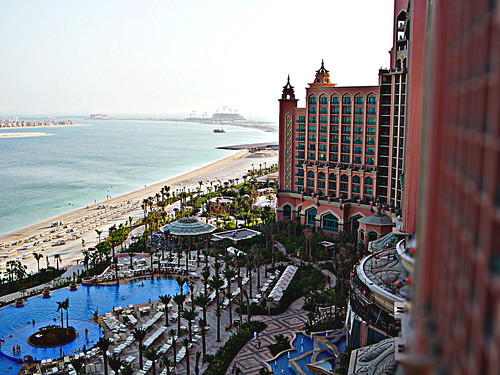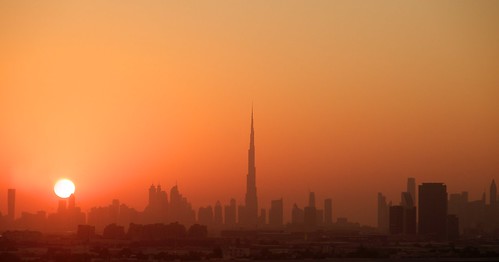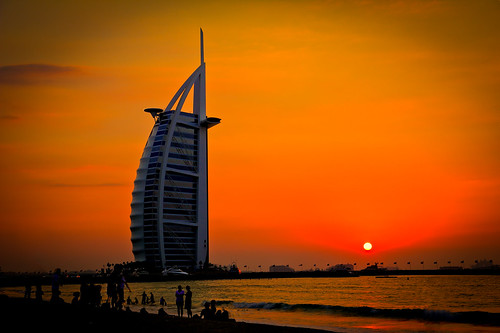An assigned team from Ras Al Khaimah Free Trade Zone (RAK FTZ) ,the
second largest Free Zone within the United Arab Emirate (UAE), is visiting the
west and south of United States of America (USA) with the intention of
tightening their already existing relations, create new grounds for relations
and to present USA companies with new and innovative investment opportunities.
The RAK FTZ delegation team is led by the emirates CEO, Peter Fort who
has his schedule booked throughout his visit to the USA. The delegation has
arranged face-to-face meetings in Los Angeles where the team will meet and
present investment opportunities to private companies, industry organizations
and chambers of commerce in an throughout the regions of Dallas, Los Angeles
and Houston. More than 500 USA-based companies have already set up operations in
the free zone and thus, the delegation team aims to build on the already
established foundation.
Ras Al Khaimah is amongst the seven emirate cities that make up the UAE, alongside with other great emirate cities like Abu Dhabi and Dubai. the UAE has developed into a international hub attracting foreing investment because of the country’s business-friendly environment, beneficial tax-regime, efficient economic policies and political constancy and stability. Ras Al Khaimah’s free zone offers foreign investors a stable and safe haven-like environment where they can set up businesses and expand. Opportunities are available to all forms of companies ranging from SMEs to global mega-companies. Once more, RAK FTZ ideal geographical position offers prospective investors easy access to numerous countries across the MENA, South Asia and Europe of course.
For over a decade now RAK FTZ has developed into a lucrative and cost-efficient haven attracting rapidly expanding regional and international markets. At present, the free zone is the home to more than 8 thousand companies originating from more than 100 countries. The companies are engaged in more than 50 industries.
as the other emirate free zone, RAK FTZ offers a plethora of benefits to its clients such as 100% foreign ownership, top-notch and already established facilities. However, the RAK FTZ differs from the other emirates in the respect that its required costs are significantly lower, offering clients and investors to obtain the maximum return on their investment. RAK FTZ free zone allows clients to set up their businesses very easily within the UAE, offering quick and simple procedures in order to get a business license, register, worker and investor visa, freedom to hire employees locally and internationally and continuous business support services. Each business’ needs and requirements are met completely. RAK FTZ provides clients top-notch business facilities, office spaces, warehouse space as well as land for lease in any of the four free zone parks in the free zone.
Ras Al Khaimah is amongst the seven emirate cities that make up the UAE, alongside with other great emirate cities like Abu Dhabi and Dubai. the UAE has developed into a international hub attracting foreing investment because of the country’s business-friendly environment, beneficial tax-regime, efficient economic policies and political constancy and stability. Ras Al Khaimah’s free zone offers foreign investors a stable and safe haven-like environment where they can set up businesses and expand. Opportunities are available to all forms of companies ranging from SMEs to global mega-companies. Once more, RAK FTZ ideal geographical position offers prospective investors easy access to numerous countries across the MENA, South Asia and Europe of course.
For over a decade now RAK FTZ has developed into a lucrative and cost-efficient haven attracting rapidly expanding regional and international markets. At present, the free zone is the home to more than 8 thousand companies originating from more than 100 countries. The companies are engaged in more than 50 industries.
as the other emirate free zone, RAK FTZ offers a plethora of benefits to its clients such as 100% foreign ownership, top-notch and already established facilities. However, the RAK FTZ differs from the other emirates in the respect that its required costs are significantly lower, offering clients and investors to obtain the maximum return on their investment. RAK FTZ free zone allows clients to set up their businesses very easily within the UAE, offering quick and simple procedures in order to get a business license, register, worker and investor visa, freedom to hire employees locally and internationally and continuous business support services. Each business’ needs and requirements are met completely. RAK FTZ provides clients top-notch business facilities, office spaces, warehouse space as well as land for lease in any of the four free zone parks in the free zone.
The two parties, UAE and USA, have long formed a partnership and both benefit
from their continuous trade and investment relations which have risen
significantly the last few years. According to the delegation team, UAE has
created one of the strongest economies in the world and thus offers USA
businesses, companies, businesspeople related in the service, trading,
manufacturing and educational sectors the opportunity to expand within the Middle
East, Africa and South Asia.
Among the top ten USA states in terms of UAE exports are California and
Texas. The UAE is confident that this fact will further highlight RAK FTZ
strategic development and accentuate the free zone’s dedication towards the
largest economy of the world-the USA. The overall international shift
concerning typical trade patterns alongside with the increase of status marked
by the southern region that links the MENA and China, has further strengthened
the UAE’s geographical importance as well as highlighting Ras Al Khaimah as the
best home to businesses and corporations that are presently leading the market
and will do so in the future.
The delegation team intends to present potential
USA investors with an efficient and detailed illustration of the benefits
offered and set up business opportunities available and offered by the RAK





